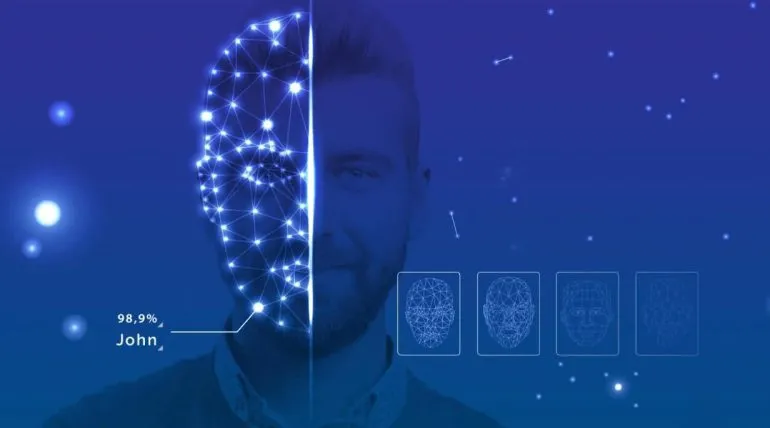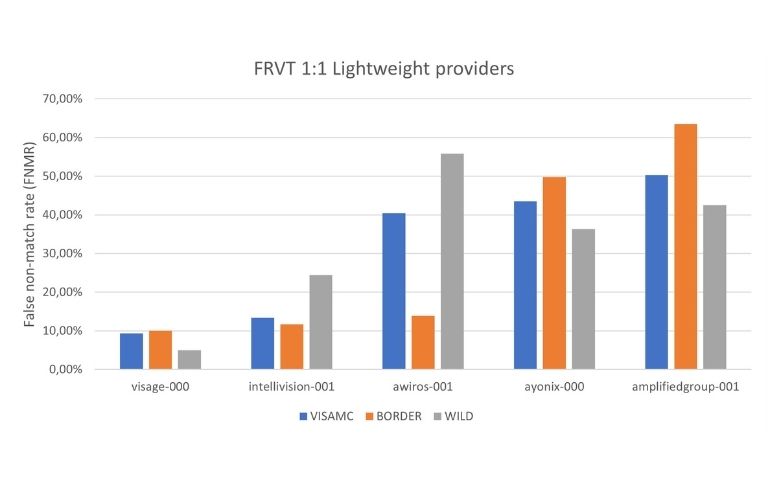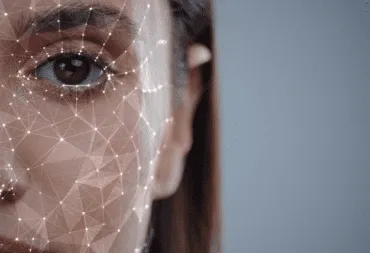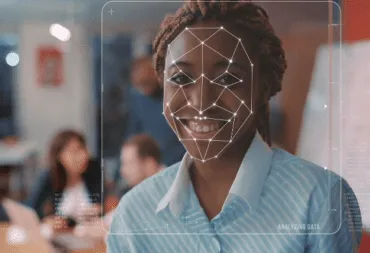NIST FRVT: Visage Technologies has the fastest and lightest reliable face recognition

Our technology is built to meet the highest standards of our clients. Another confirmation of its quality comes from The National Institute of Standards and Technology (NIST) that provides independent, world-renowned evaluations of facial recognition algorithms.
The latest version of NIST’s ongoing Face Recognition Vendor Test (FRVT 1:1), published on 18th December 2020, features Visage Technologies’ first submission ever. Our face recognition algorithm achieved outstanding results on every test.
The lightest and fastest face recognition algorithm
NIST face recognition evaluation measured the performance of 260 submissions The results have confirmed that Visage Technologies’ face recognition is extremely fast and lightweight. Its average execution time was as short as 26.25 ms, with a peak memory usage of only 73 MB. The report placed it in second place for speed and fifth place for memory usage. However, if we take accuracy (and, therefore, the actual usability) into account as well, our face recognition is the very fastest and lightest reliable submission overall.
For a more relevant analysis, let’s also take a look at providers that target edge computing, i.e. the “lightweight” methods. Lightweight methods require low execution time and memory consumption in order to be executed on platforms with limited resources (embedded systems, mobile devices, cameras, etc.). Their template generation time should be lower than 100 ms, and their peak memory usage should not exceed 100 MB.

Among the lightweight submissions, Visage Technologies’ algorithm was the fastest and most accurate submission. It achieved top accuracy on 4 tests (VISAMC, VISA, BORDER (FMR=1e-5), and WILD), and second-best accuracy on the remaining 4 tests (MUGSHOT, MUGSHOT12+YRS, BORDER (FMR=1e-6) and VISABORDER). The accuracy was the highest on unconstrained images in the wild.
If you’d like to read a more detailed report, contact us.
What is NIST FRVT 1:1?
FRVT 1:1 is aimed at measurement of the performance of automated face recognition technologies applied to a wide range of civil, law enforcement and homeland security applications including verification of visa images, de-duplication of passports, recognition across photojournalism images, and identification of child exploitation victims. In all cases, the input image contains one face only. The performance reports include measurements of accuracy, speed, storage, memory consumption, and resilience.
NIST measures the accuracy of facial recognition algorithms based on FNMR. False non-match rate (FNMR) is the proportion of mated comparisons below a threshold set to achieve the false match rate (FMR) specified. FMR is the proportion of impostor comparisons at or above that threshold. For example, an FNMR of .0001 implies one error for every 1,000 images, while an FNMR of .1 implies one mistake for every 10.
In other words, a false non-match occurs when the algorithm fails to identify a genuine match. In practice, this means that the facial recognition system would deny access to an already enrolled individual. On the other hand, a false match happens when the algorithm matches an input image with the wrong person. In this case, the system would incorrectly recognize the individual that has not been enrolled before and grant them access.
Request a demo
Our R&D team has always been dedicated to creating the fastest and most accurate algorithms that can be easily deployed on a variety of platforms. Their excellent performance has now been recognized in the most respected facial recognition benchmark, too.
If you need to build a reliable facial recognition solution, get in touch. We’d be happy to share more information about FaceRecognition, and give you access to a free evaluation license so that you can try it out yourself.
Disclaimer: Results shown from NIST do not constitute an endorsement of any particular system, product, service, or company by NIST.

